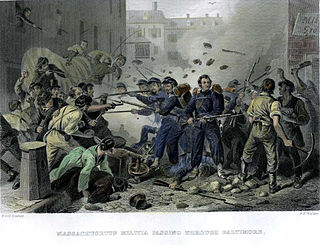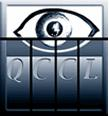
The American Civil Liberties Union (ACLU) is an American nonprofit human rights organization founded in 1920. The organization's website has stated that the organization strives "to defend and preserve the individual rights and liberties guaranteed to every person in this country by the Constitution and laws of the United States." ACLU affiliates are active in all 50 states, Washington, D.C., and Puerto Rico. The ACLU provides legal assistance in cases where it considers civil liberties at risk. Legal support from the ACLU can take the form of direct legal representation or preparation of amicus curiae briefs expressing legal arguments when another law firm is already providing representation.
Civil liberties are guarantees and freedoms that governments commit not to abridge, either by constitution, legislation, or judicial interpretation, without due process. Though the scope of the term differs between countries, civil liberties may include the freedom of conscience, freedom of press, freedom of religion, freedom of expression, freedom of assembly, the right to security and liberty, freedom of speech, the right to privacy, the right to equal treatment under the law and due process, the right to a fair trial, and the right to life. Other civil liberties include the right to own property, the right to defend oneself, and the right to bodily integrity. Within the distinctions between civil liberties and other types of liberty, distinctions exist between positive liberty/positive rights and negative liberty/negative rights.

The Baltimore riot of 1861 was a civil conflict on Friday, April 19, 1861, on Pratt Street, Baltimore, Maryland. It occurred between antiwar "Copperhead" Democrats and other Confederate sympathizers on one side, and on the other, members of Massachusetts and Pennsylvania state militia regiments en route to the national capital at Washington who had been called up for federal service. The fighting began at the President Street Station, spreading throughout President Street and subsequently to Howard Street, where it ended at the Camden Street Station. The riot produced the first deaths of Union volunteers by hostile action, although caused by civilians, in the American Civil War. Civilians among the attackers also were killed.

The Orangeburg Massacre was a shooting of student protesters that took place on February 8, 1968, on the campus of South Carolina State College in Orangeburg, South Carolina, United States. Nine highway patrolmen and one city police officer opened fire on a crowd of African American students, killing three and injuring twenty-eight. The shootings were the culmination of a series of protests against racial segregation at a local bowling alley, marking the first instance of police killing student protestors at an American university.

The rights of civilian and military prisoners are governed by both national and international law. International conventions include the International Covenant on Civil and Political Rights; the United Nations' Minimum Rules for the Treatment of Prisoners, the European Committee for the Prevention of Torture and Inhuman or Degrading Treatment or Punishment, and the Convention on the Rights of Persons with Disabilities.
Vithal Mahadeo Tarkunde, was a prominent Indian lawyer, civil rights activist, and humanist leader and has been referred to as the "Father of the Civil Liberties movement" in India and a former judge of the Bombay High Court The Supreme Court of India also praised him as "undoubtedly the most distinguished judge of the post-Chagla 1957 period" in the Bombay High Court.
Human rights in India is an issue complicated by the country's large size and population as well as its diverse culture, despite its status as the world's largest sovereign, secular, socialist democratic republic. The Constitution of India provides for fundamental rights, which include freedom of religion. Clauses also provide for freedom of speech, as well as separation of executive and judiciary and freedom of movement within the country and abroad. The country also has an independent judiciary as well as bodies to look into issues of human rights.
Popular opposition to the American Civil War, which lasted from 1861 to 1865, was widespread. Although there had been many attempts at compromise prior to the outbreak of war, there were those who felt it could still be ended peacefully or did not believe it should have occurred in the first place. Opposition took the form of both those in the North who believed the South had the right to be independent and those in the South who wanted neither war nor a Union advance into the newly declared Confederate States of America.

The Southern bread riots were events of civil unrest in the Confederacy during the American Civil War, perpetrated mostly by women in March and April 1863. During these riots, which occurred in cities throughout the Southern United States, hungry women and men invaded and looted various shops and stores.

A political demonstration is an action by a mass group or collection of groups of people in favor of a political or other cause or people partaking in a protest against a cause of concern; it often consists of walking in a mass march formation and either beginning with or meeting at a designated endpoint, or rally, in order to hear speakers. It is different from mass meeting.

Rajindar Sachar was an Indian lawyer and a former Chief Justice of the Delhi High Court. He was a member of United Nations Sub-Commission on the Promotion and Protection of Human Rights and also served as a counsel for the People's Union for Civil Liberties.
People's Union for Civil Liberties (PUCL) is a human rights body formed in India in 1976 by Jayaprakash Narayan, as the People's Union for Civil Liberties and Democratic Rights (PUCLDR).
Civil liberties in the United Kingdom are part of UK constitutional law and have a long and formative history. This is usually considered to have begun with Magna Carta of 1215, a landmark document in British constitutional history. Development of civil liberties advanced in common law and statute law in the 17th and 18th centuries, notably with the Bill of Rights 1689. During the 19th century, working-class people struggled to win the right to vote and join trade unions. Parliament responded with new legislation beginning with the Reform Act 1832. Attitudes towards suffrage and liberties progressed further in the aftermath of the first and second world wars. Since then, the United Kingdom's relationship to civil liberties has been mediated through its membership of the European Convention on Human Rights. The United Kingdom, through Sir David Maxwell-Fyfe, led the drafting of the Convention, which expresses a traditional civil libertarian theory. It became directly applicable in UK law with the enactment of the Human Rights Act 1998.
Lalit Maken was a Member of parliament, a political leader of Indian National Congress and a labour union leader. Maken was the son-in-law of late President of India, Shankar Dayal Sharma.

The Memphis massacre of 1866 was a rebellion with a series of violent events that occurred from May 1 to 3, 1866 in Memphis, Tennessee. The racial violence was ignited by political and social racism following the American Civil War, in the early stages of Reconstruction. After a shooting altercation between white policemen and black veterans recently mustered out of the Union Army, mobs of white residents and policemen rampaged through black neighborhoods and the houses of freedmen, attacking and killing black soldiers and civilians and committing many acts of robbery and arson.

The 1984 anti-Sikh riots, also known as the 1984 Sikh massacre, was a series of organised pogroms against Sikhs in India following the assassination of Indira Gandhi by her Sikh bodyguards. Government estimates project that about 2,800 Sikhs were killed in Delhi and 3,350 nationwide, whilst other sources estimate the number of deaths at about 8,000–17,000.

The Queensland Council for Civil Liberties (QCCL) is a voluntary organisation in Australia concerned with the protection of individual rights and civil liberties. It was founded in 1966 in order "to protect and promote the human rights and freedoms of Queensland citizens." The QCCL is regularly asked by the Government to make submissions to committees, which is how bills are made in Parliament. These submissions cover issues such as closed circuit television, abortion law reform, sentencing issues in our court system and changes to legislation already in place, which are called amendments.

The American Civil Liberties Union of New Jersey (ACLU-NJ) is a nonpartisan, not-for-profit civil rights organization in Newark, New Jersey, and an affiliate of the national American Civil Liberties Union. According to the ACLU-NJ's stated mission, the ACLU-NJ operates through litigation on behalf of individuals, lobbying in state and local legislatures, and community education.

Dinesh Mohan was honorary professor at Indian Institute of Technology Delhi since 2017. He was distinguished professor at Shiv Nadar University, Gautam Buddha Nagar (India) from 2016 to 2018. From 2010 to 2015 he was Emeritus Volvo Chair Professor for Transportation Planning & Safety at IITD. He was head of Centre for Biomedical Engineering (1991–1996), Coordinator of the Transportation Research and Injury Prevention Programme (1998–2010) and head, W.H.O. Collaborating Centre for Research and Training in Safety Technology at IIT Delhi (1991–2010). He was also Director, Independent Council for Road Safety International (www.icorsi.org).
The 1987 Meerut Riots were a series of violent communal disturbances between Hindus and Muslims in the northern Uttar Pradesh town Meerut which occurred from March to June 1987, which resulted in the death of more than 350 people. Nearly half of that number was made up of almost 150 Muslims from Hashimpura and Maliana who were killed by members of the UP Provincial Armed Constabulary in actions after the initial rioting.











